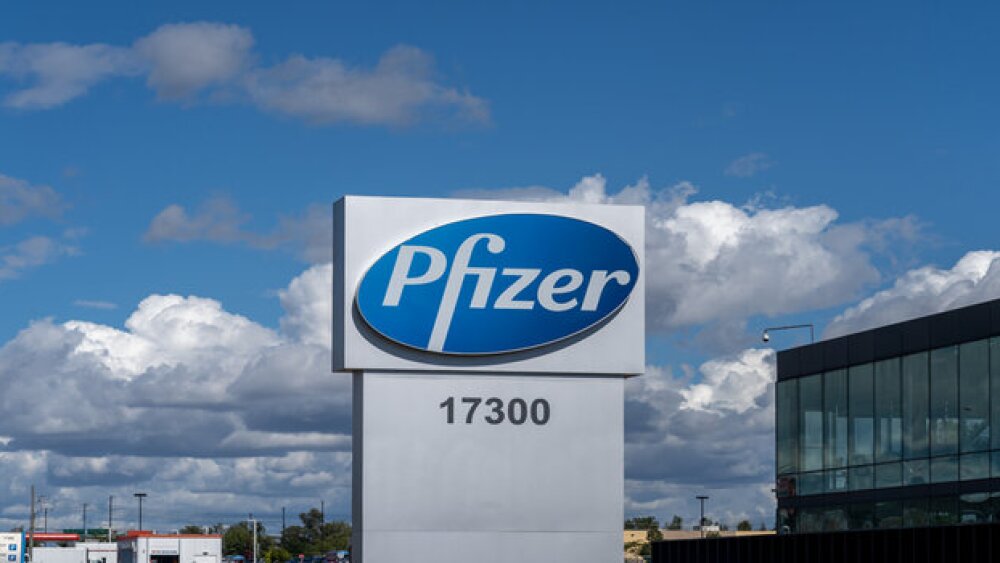Updated results with longer follow-up reveal confirmed ORR of 68% and median PFS of 14.2 months in patients with CLDN18.2 high or medium expression, known PD-L1 CPS (n=66).
PRINCETON, N.J. and SUZHOU, China, Sept. 18, 2024 /PRNewswire/ -- Transcenta Holding Limited ("Transcenta") (HKEX: 06628), a global clinical stage biopharmaceutical company with fully-integrated capabilities in discovery, research, development and manufacturing of antibody-based therapeutics, today announced the updated results from the cohort-G data for Osemitamab (TST001) plus Nivolumab and CAPOX as the first-line treatment for the patients with advanced G/GEJ cancer (TranStar102). The updated data continues to show encouraging efficacy from previously disclosed data at ASCO 2024.
The results showed that in patients with known CLDN18.2 and PD-L1 status, the median progression-free survival (mPFS) reached 14.2 months for those with H/M CLDN18.2 expression, with a confirmed objective response rate of 68%. The vast majority of these patients are PD-L1 CPS<5.
Using the group of patients with very low or no CLDN18.2 expression as surrogate control, the HR for the triple combination is 0.505 (95% CI, 0.244-1.045) in favor of the CLDN18.2 H/M, any CPS expressers. The data corroborates the synergistic mechanism of action between CLDN18.2 targeting agent and checkpoint inhibitors reported by Transcenta last year at ESMO which showed that CLDN18.2 targeting antibody can induce PD-L1 expression in gastric cancer tumor cells (even in those with PD-L1 low or null expression) and T-cell infiltration. As of the cutoff date, the median OS was not reached because of the limited number of events, the 12-month survival rate for the overall population (82 patients) in this cohort was 73.8% (95% CI: 62.0- 82.4%).
Previous studies have found that the combination of Zolbetuximab+CAPOX in CLDN18.2 positive patients, regardless of the PD-L1 status, leads to an improvement in PFS from 6.80 to 8.21 months (HR = 0.687 (95% CI, 0.544-0.866) (Source: Shah, Manish A et al. Nature Medicine 2023 Aug 29 (8): 2133-2141). This updated Cohort-G data shows that the efficacy from the triple combo therapy of Osemitamab (TST001) plus Nivolumab and CAPOX compares very favorably with the historical data of Nivolumab plus CAPOX combination or Zolbetuximab plus CAPOX combination.
The updated data has been featured as a poster presentation (Abstract #1419p) on September 16, 2024 at the ESMO Congress 2024 in Barcelona, Spain.
"The updated data from the Cohort-G trial of Osemitamab (TST001) in combination with Nivolumab and CAPOX as first-line treatment for advanced G/GEJ cancer are highly encouraging. The confirmed objective response rate and median progression-free survival in patients with high/medium CLDN18.2 expression, known PD-L1, as compared to patients with no CLDN18.2 expression, confirm the synergy between Osemitamab (TST001) and Checkpoint inhibitors and demonstrates the potential of this triple combination therapy, potentially including in low PD-L1 expressers," said Dr. Caroline Germa, Executive Vice President, Global Medicine Development and Chief Medical Officer at Transcenta, "These results highlight the promise of Osemitamab (TST001) in improving outcomes for patients with advanced G/GEJ cancer."
"The Cohort-G data presented at ESMO 2024 provide compelling evidence of the clinical benefit of the triple combination therapy. The significant improvement in progression-free survival and objective response rate, particularly in patients with high/medium CLDN18.2 expression and low PD-L1 CPS, is a testament to the potential of this therapeutic approach," said Professor Lin Shen, Director, department of Gastrointestinal Oncology and Phase I Clinical Trial Center at Peking University Cancer Hospital; and Principal Investigator of the trial, "We are excited about the potential benefits this treatment could bring to our patients."
A brief summary of the study is as follows:
Study Design
Cohort G from Transtar102 study (NCT04495296) was designed to explore the safety and efficacy of Osemitamab (TST001) plus Nivolumab and CAPOX as first-line treatment for advanced G/GEJ cancer, with a safety lead-in and expansion phase. Patients were alternately allocated to 3 or 6mg/ kg at expansion phase. Eligible patients include HER2 negative or unknown, unresectable locally advanced or metastatic G/GEJ cancer, regardless of CLDN18.2 or PD-L1 expression. CLDN18.2 and PD-L1 status were analyzed retrospectively using IHC 14G11 LDT assay and PD-L1 IHC 28-8 pharmDx at a central laboratory. The CLDN18.2 expression was divided into three subgroups: H/ M (high/medium), L (low) and R (rest: lower or negative) according to the tumor cells showing membranous CLDN18.2 staining per CLDN18.2 IHC 14G11 LDT assay.
Encouraging ORR and mPFS
As of the cut-off date, 82 patients had been dosed with a median follow-up of 15.2 months. The exploratory analysis of the subgroup efficacy of patients in overall, overall with/known CLDN18.2/ PD-L1, and in the subgroup with PD-L1 CPS<5 is as follows:
- Overall patients group: The mPFS is 12.6 months in patients with high or medium expression (H/M), 7.1 months in patients with low expression (L) and 8.5 months in the rest patients (R). Confirmed ORR was 58.1%, 52.4% and 55.6% respectively. 12 months survival rate for the overall population (n=82) is 73.8%.
- Overall patients with known CLDN18.2/PD-L1 (n=66): The mPFS is 14.2 months in the patients with high or medium expression (H/M), 8.5 months in patients with low expression (L) and 6.7 months in the rest patients (R). Confirmed ORR was 68.0%, 61.1% and 50.0% respectively.
- Subgroup with PD-L1 CPS<5 (n=56): The mPFS is 16.6 months in the patients with high or medium expression (H/M), 7.1 months in patients with low expression (L) and 5.7 months in the rest patients (R). Confirmed ORR was 71.4%, 60.0% and 47.1% respectively.
Manageable Safety Profile
All patients experienced treatment-related adverse events (TRAE). The most common TRAEs were hypoalbuminaemia, nausea and vomiting, most of them were of CTC AE grade 1 or 2 and manageable. The safety profile was similar to TST001 in combination with CAPOX which was presented previously (J Clin Oncol 41, 2023, suppl 16; abstr 4046).
About Osemitamab (TST001)
Osemitamab (TST001) is a high affinity humanized anti-CLDN18.2 monoclonal antibody with enhanced antibody-dependent cellular cytotoxicity ("ADCC"). It has shown potent anti-tumor activities in tumor xenograft models. Osemitamab (TST001) is the second most advanced CLDN18.2 targeting antibody being developed globally. Osemitamab (TST001) was generated using Transcenta's Immune Tolerance Breaking Technology (IMTB) platform. Osemitamab (TST001) kills CLDN18.2 expressing tumor cells by mechanisms of ADCC. Leveraging advanced bioprocessing technology, the fucose content of Osemitamab (TST001) was significantly reduced during the production, which further enhanced NK cells mediated ADCC activity of Osemitamab (TST001). Clinical trials for Osemitamab (TST001) are ongoing in the U.S. and China (TranStar101/NCT04396821, TranStar102/NCT04495296). Osemitamab (TST001) has been granted Orphan Drug Designation in the U.S. by FDA for the treatment of patients with gastric or gastroesophageal junction (G/GEJ) and pancreatic cancer.
About Transcenta
Transcenta (HKEX: 06628) is a clinical stage biopharmaceutical company with fully integrated capabilities in antibody-based biotherapeutics discovery, research, development and manufacturing.
Transcenta has established global footprint, with Headquarters and Discovery, Clinical and Translational Research Center in Suzhou, Process and Product Development Center and Manufacturing Facility in Hangzhou, and Clinical Development Centers in Princeton, US and in Beijing, Shanghai and Guangzhou of China, and External Partnering Center in Boston and Los Angeles, US. Transcenta is developing 14 therapeutic antibody molecules for oncology and selected non-oncology indications including bone and kidney disorders.
CONTACT:
Bryan Cheng, bryan.cheng@transcenta.com, 15067129733
![]() View original content:https://www.prnewswire.com/news-releases/transcenta-updates-encouraging-efficacy-data-from-first-line-triple-combo-trial-of-osemitamab-tst001-for-ggej-cancer-at-esmo-2024-302251645.html
View original content:https://www.prnewswire.com/news-releases/transcenta-updates-encouraging-efficacy-data-from-first-line-triple-combo-trial-of-osemitamab-tst001-for-ggej-cancer-at-esmo-2024-302251645.html
SOURCE Transcenta Holding Limited





